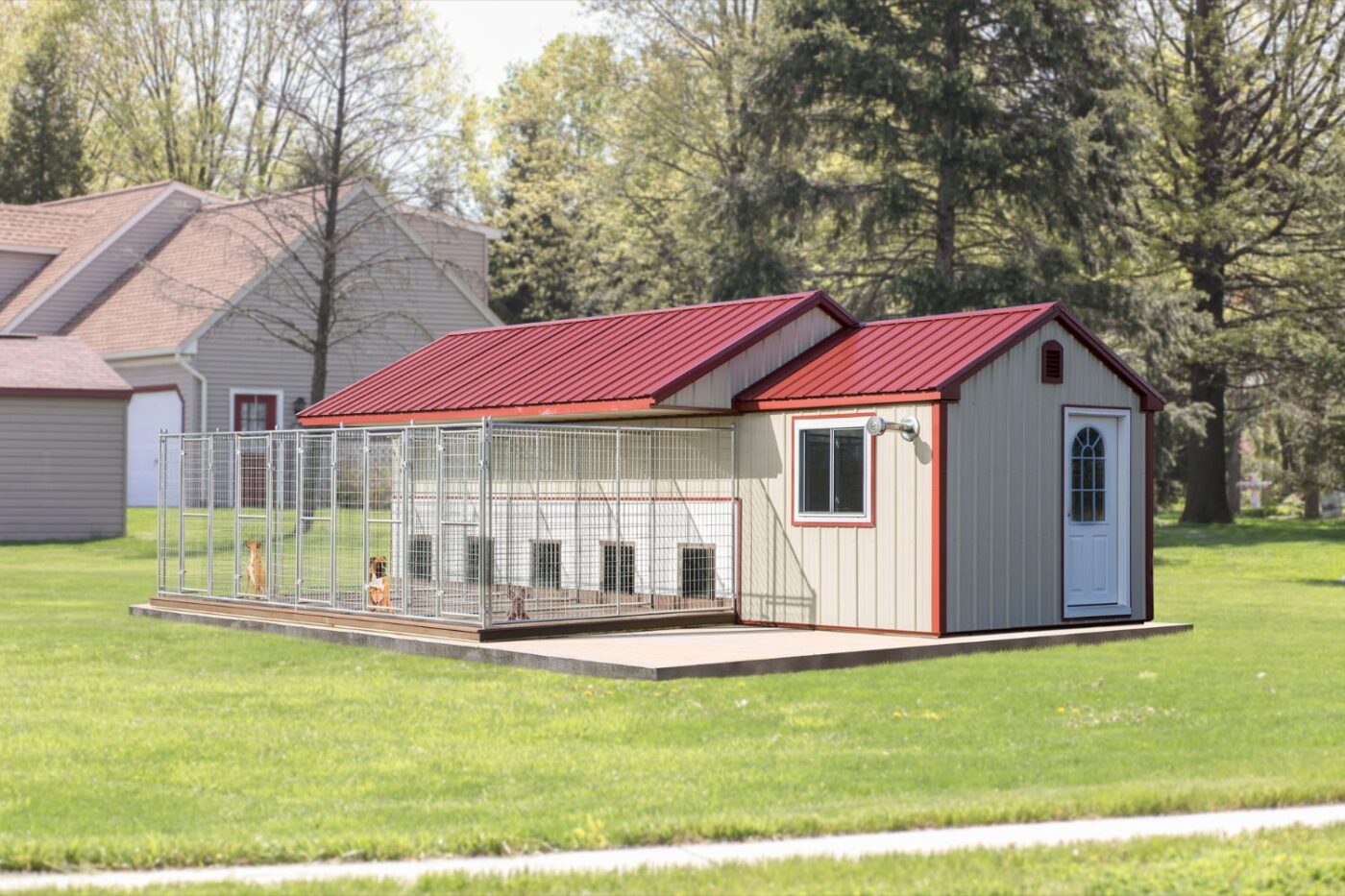
If you’re planning to operate a dog business, regardless if it’s for breeding, boarding, training, or a mix of purposes, there are a number of dog kennel laws in Maine you’ll need to meet before opening your doors. Any location housing five or more dogs over six months old must obtain a license, which needs to be visibly displayed both on-site and in any advertising or online listings. Before a local license can be issued, the facility must pass an inspection carried out by the Animal Control Officer, with these inspections happening on an annual basis. The cost of licensing typically starts at $42 for facilities keeping up to 10 dogs. Kennels are expected to meet standards related to sanitation, drainage, shelter, and lighting, and must maintain two years’ worth of transaction records for review.
Businesses involved in selling animals, especially young dogs or cats, may also need a vendor’s license. In cases where animals are brought into the state for resale or adoption, proper permits and shelter licensing are also required. There’s growing attention on how hobby kennels are classified, which could lead to updated guidelines in the near future.
Do I Need A Dog Kennel License in Maine?
Yes, you need a dog kennel license. If you’re keeping five or more dogs in Maine for purposes like breeding, hunting, training, or showing, you’re required to obtain a kennel license through your local town office. This license typically applies when the dogs are six months of age or older and is separate from the individual licenses each dog also needs. A standard kennel license typically allows for up to ten dogs and may require documentation, such as current rabies vaccination records. Fees can vary depending on where you live, and in many cases, a local inspection may be part of the approval process. The license is issued at the municipal level, so you’ll need to reach out to your town clerk to begin the process.
Do I Need An LLC For A Dog Kennel?
Setting up an LLC in Maine for a dog kennel business isn’t required by law, but it’s often a smart move for anyone looking to protect their personal assets. By creating a legal distinction between your kennel operation and your personal finances, an LLC helps reduce the risk of being held personally responsible if the business faces legal action or financial issues. This added layer of protection can be especially valuable for those running larger operations or offering services to the public, such as boarding or breeding.
How Many Dogs Can You Own in Maine?
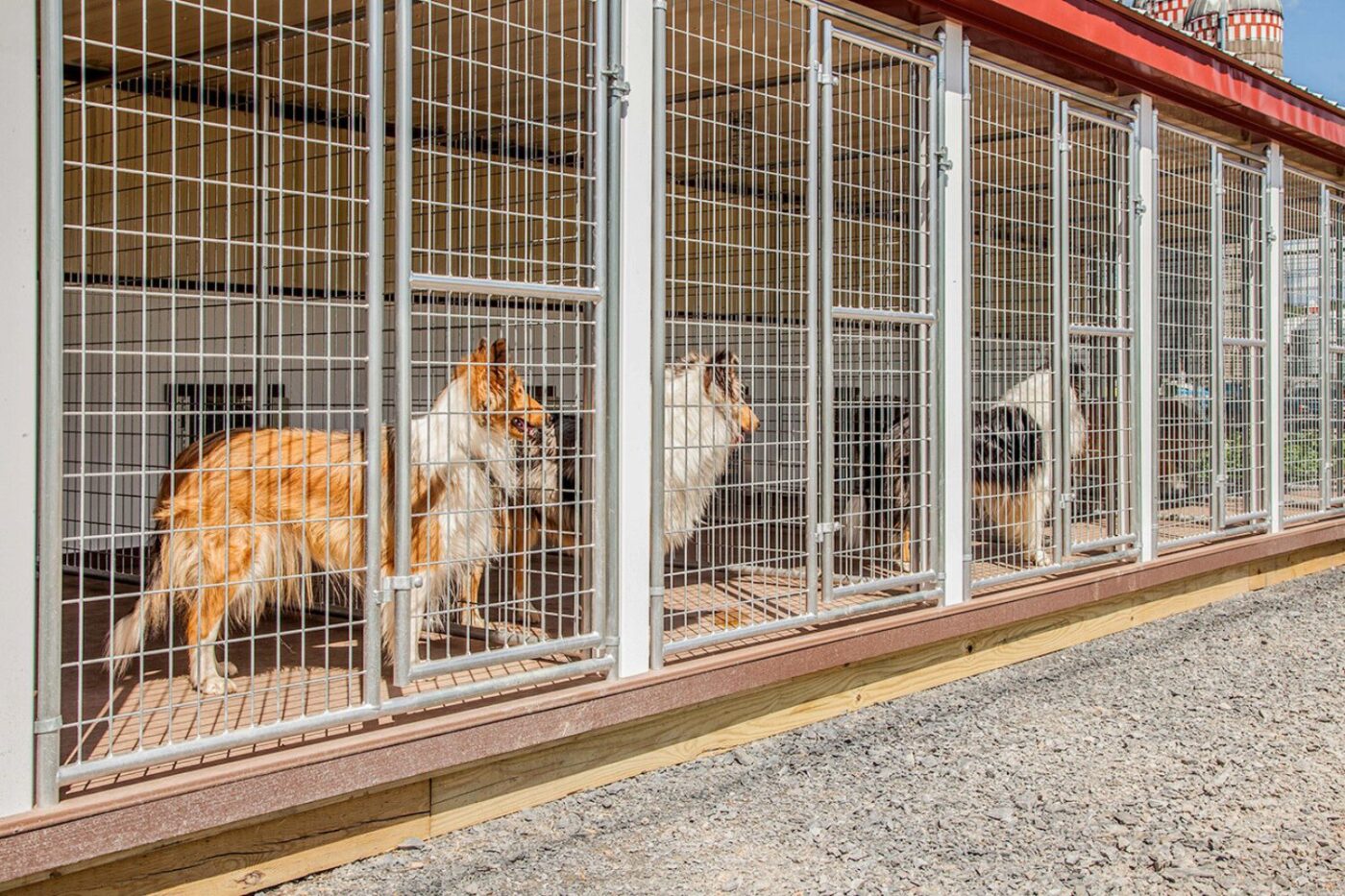
The number of dogs you can keep in Maine depends mainly on the town or city you live in, as there’s no single rule that applies statewide. While some municipalities allow up to three or four dogs without requiring any special permissions, exceeding that number usually means you’ll need to apply for a kennel license. Each local government has the authority to establish its own limits, so the rules can vary significantly from one area to another.
For example, certain towns may mandate an inspection by an Animal Control Officer before granting a license to households with more than a set number of dogs. To know what applies to your situation, it’s best to check your town’s ordinances or speak directly with the local Animal Control Officer.
Do Dogs Need To Be Licensed In Maine?
Yes, in Maine, once a dog reaches six months of age, it must be registered with the local town or city office each year. This process usually requires proof of a valid rabies vaccination, and if the dog has been spayed or neutered, documentation for that as well. The registration period generally opens in mid-October and runs through the end of December, with late penalties applying after the close of January. Costs can vary depending on whether the dog is fixed, but fees are modest and help support broader animal welfare initiatives across the state. Licensing also makes it easier to reunite lost pets with their owners. Ignoring this requirement can lead to fines or other penalties, so it’s a step pet owners shouldn’t skip.
Dog Kennel Regulations By Industry in Maine
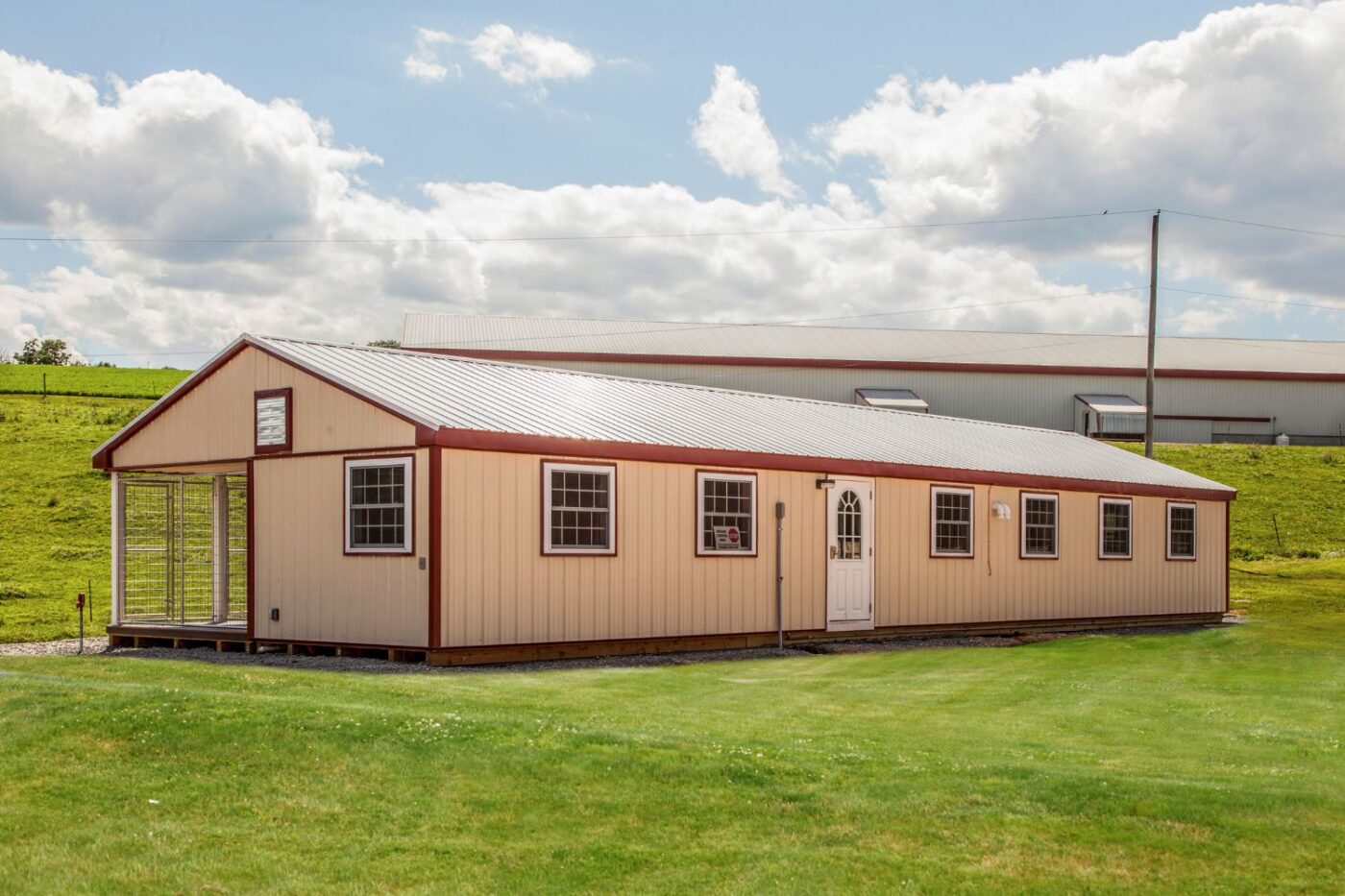
In Maine, the rules governing dog kennels can differ depending on the type of operation, such as boarding, breeding, or sheltering. Regardless of the specific focus, all facilities must be properly licensed to operate legally. These businesses are expected to meet specific structural and care standards, including having reliable utilities like water and electricity, maintaining clean and secure enclosures, and ensuring animals are housed in safe, climate-appropriate conditions.
Regular sanitation protocols must be followed, especially for waste management and food and water containers. Operators are also required to keep detailed records for at least two years, covering everything from where animals come from to their veterinary history and any transfers or adoptions. State authorities have the right to inspect these facilities to verify compliance, and in cases where illness may pose a risk, a licensed vet can place a kennel under quarantine to protect public and animal health.
Dog Boarding Regulations in Maine
Operating a dog boarding kennel in Maine involves meeting specific requirements set by the state. To begin with, a license must be obtained through the Department of Agriculture, Conservation, and Forestry, and that license number should appear clearly in all forms of promotion or advertising. These facilities are also expected to give clients a written breakdown of the services offered, along with the associated costs. In some cases, a conditional license may be issued, typically allowing a business to operate while it works toward meeting full compliance with regulatory standards.
Dog Vet Regulations in Maine
In Maine, veterinarians and veterinary technicians must be licensed to practice, with clearly defined roles. Vets handle diagnoses, surgery, and prescriptions, while techs assist under supervision. Clinics must meet state standards for care, sanitation, and record-keeping. Animal welfare laws require humane treatment and proper disease management, and special rules apply for dangerous or nuisance dogs. Telehealth is allowed, but doesn’t expand a vet’s scope of practice. Ongoing education is also required, especially when prescribing controlled substances. Licensing and enforcement are managed through state agencies and professional boards.
Dog Grooming Regulations in Maine
In Maine, individuals offering dog grooming services are not legally required to hold a specific state license or certification. However, many employers in the field prefer candidates who have formal training or hands-on experience handling animals. While groomers aren’t subject to licensing regulations unique to their trade, they must still comply with general business requirements, such as obtaining local permits. It’s also important for grooming professionals to be familiar with Maine’s broader animal welfare laws, which include mandatory dog licensing for pets over six months of age, required rabies vaccinations, and rules prohibiting dogs from roaming freely off their owners’ property. Grooming establishments must also ensure that animals are cared for in a clean, humane environment.
Dog Shelter Regulations in Maine
Dog shelters in Maine operate under a set of guidelines outlined in state law that address everything from licensing and facility conditions to how stray animals are handled. These shelters must be officially licensed by the Department of Agriculture, Conservation and Forestry, and are expected to maintain clean, safe environments that allow animals enough space to move comfortably. Specific rules are in place for the management of stray dogs, including minimum hold times before adoption or euthanasia can occur.
Shelters must also follow vaccination requirements, particularly for rabies, and may be subject to quarantine measures when needed. Adoption practices are regulated, and shelters can charge fees or require spay/neuter deposits. Inspections are conducted by state authorities to ensure facilities are meeting legal standards, and in cases of animal neglect or abuse, officials can pursue court orders to remove animals from unsafe conditions.
Dog Trainer Regulations in Maine
In Maine, dog training as a profession is not regulated at the state level, so there’s no formal requirement for trainers to hold a license or certification. Despite this, certain activities, especially those involving hunting, do fall under specific rules. For instance, anyone training dogs to track or hunt game like bear, raccoon, or fox must secure a permit issued by state wildlife authorities, though exceptions exist for minors and individuals training under a licensed guide.
Additionally, designated training grounds require a special license and must be properly marked, with hunting generally prohibited on these properties unless conducted by the landowner. When it comes to service animals, Maine follows federal guidelines under the ADA, which recognize only dogs trained to perform specific disability-related tasks. Emotional support animals do not fall under this category. Though dog training remains an open field without mandatory certification, many professionals seek credentials from recognized organizations to validate their expertise.
Dog Breeder Regulations in Maine
In Maine, dog breeders operating on a larger scale must follow specific licensing rules and animal care standards to remain in compliance. Below is a breakdown of key requirements:
Breeding Kennel License:
Required for anyone keeping five or more adult female dogs or cats capable of reproduction.
License Fees (Based on Breeding Females):
- Category 1: $75
- Category 2: $100
- Category 3: $150
Definition of a Breeding Kennel:
A location with five or more breeding-age females where some or all offspring are sold or exchanged for value, or a facility that sells more than 16 animals in a 12-month period.
Municipal Requirements:
Some towns may require a separate local kennel license, which may also involve inspections.
Animal Welfare Standards:
Breeders must meet guidelines for housing, sanitation, exercise, and humane treatment.
Sales & Disclosures:
Specific rules apply when transferring animals, including disclosure requirements and restrictions on selling wolf hybrids.
USDA Licensing:
Breeders with more than four breeding females who sell sight-unseen (e.g., online or to pet stores) may need a federal license.
Recordkeeping:
Maintain two years of records on purchases and sales, available upon request.
Inspections & Enforcement:
Facilities may be inspected by state or local officials. Violations can result in fines, penalties, or license revocation.
Renewal:
Licenses are valid for 12 months and must be renewed annually.
K-9 Dog Facilities in Maine
K-9 facilities in Maine, such as breeding and boarding kennels, must follow a range of regulatory standards set by the Department of Agriculture, Conservation, and Forestry. These requirements address the basic care and housing of dogs, including provisions for clean living conditions, disease prevention measures, and adequate shelter. Operators are also expected to obtain proper licensing in order to run such facilities legally. In addition to general facility rules, Maine has specific guidelines for managing dogs deemed dangerous or a public nuisance. These can include mandates for secure restraint, such as leashing or muzzling, and in some cases, maintaining liability insurance to cover potential incidents.
Dog Kennel Laws By County in Maine
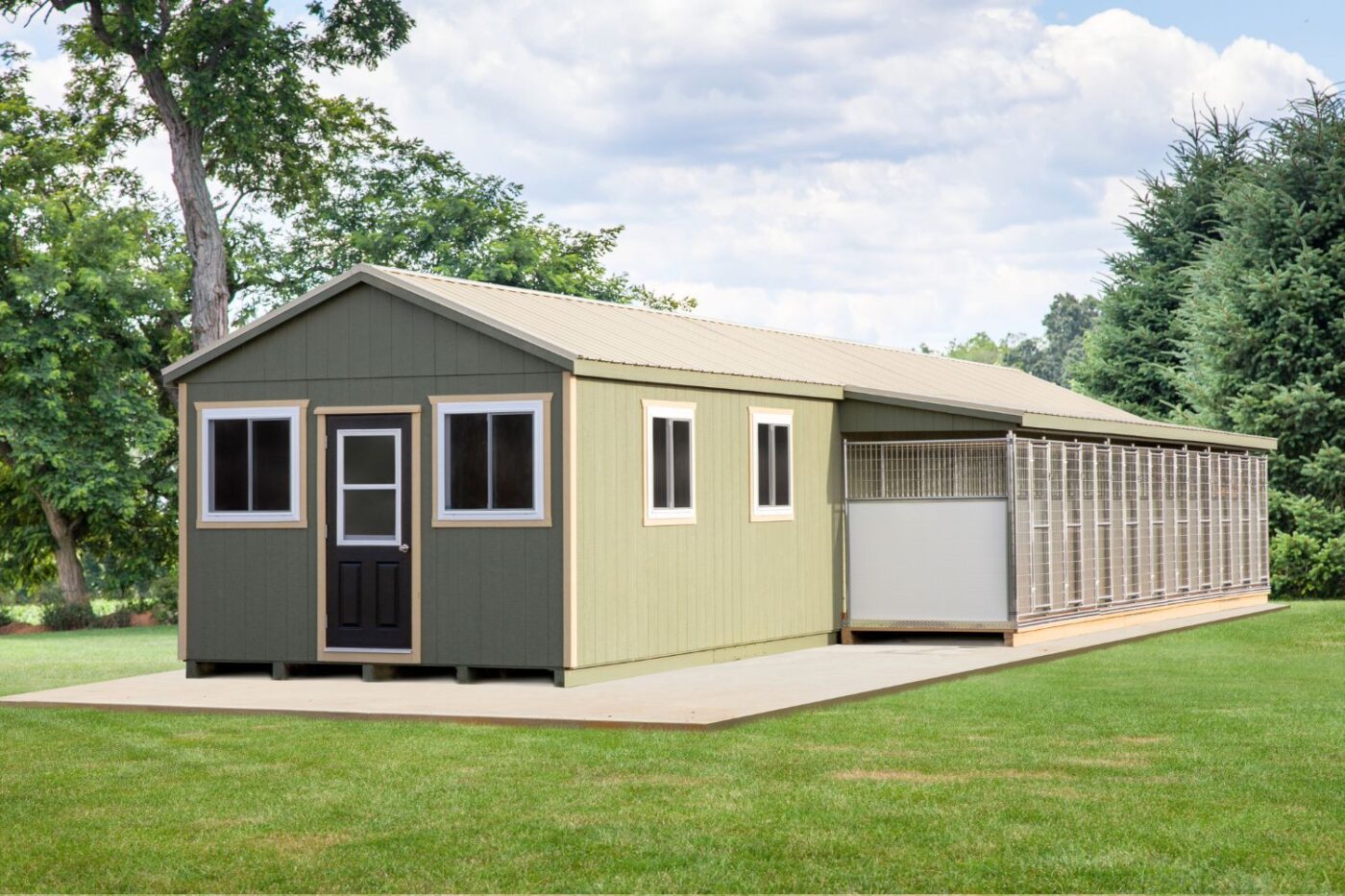
Dog kennel regulations in Maine can vary from one county to another, often covering things like the number of dogs allowed, minimum facility size, and zoning restrictions. For the most up-to-date and location-specific information, it’s best to contact your county’s planning department using the link provided.
| Androscoggin County | Androscoggin County Planning Department |
| Aroostook County | Aroostook County Permits & Zoning |
| Cumberland County | Cumberland County Planning Department |
| Franklin County | Franklin County Website |
| Hancock County | Hancock County Planning Commission |
| Kennebec County | Kennebec County Community Planning |
| Knox County | Knox County Website |
| Lincoln County | Lincoln County Regional Planning Commission |
| Oxford County | Oxford County Planning Board |
| Penobscot County | Penobscot County Planning Board |
| Piscataquis County | Piscataquis County Website |
| Sagadahoc County | Sagadahoc County Website |
| Somerset County | Somerset County Website |
| Waldo County | Waldo County Website |
| Washington County | Washington County Website |
| York County | York County Website |
Dog Kennel Laws By City in Maine
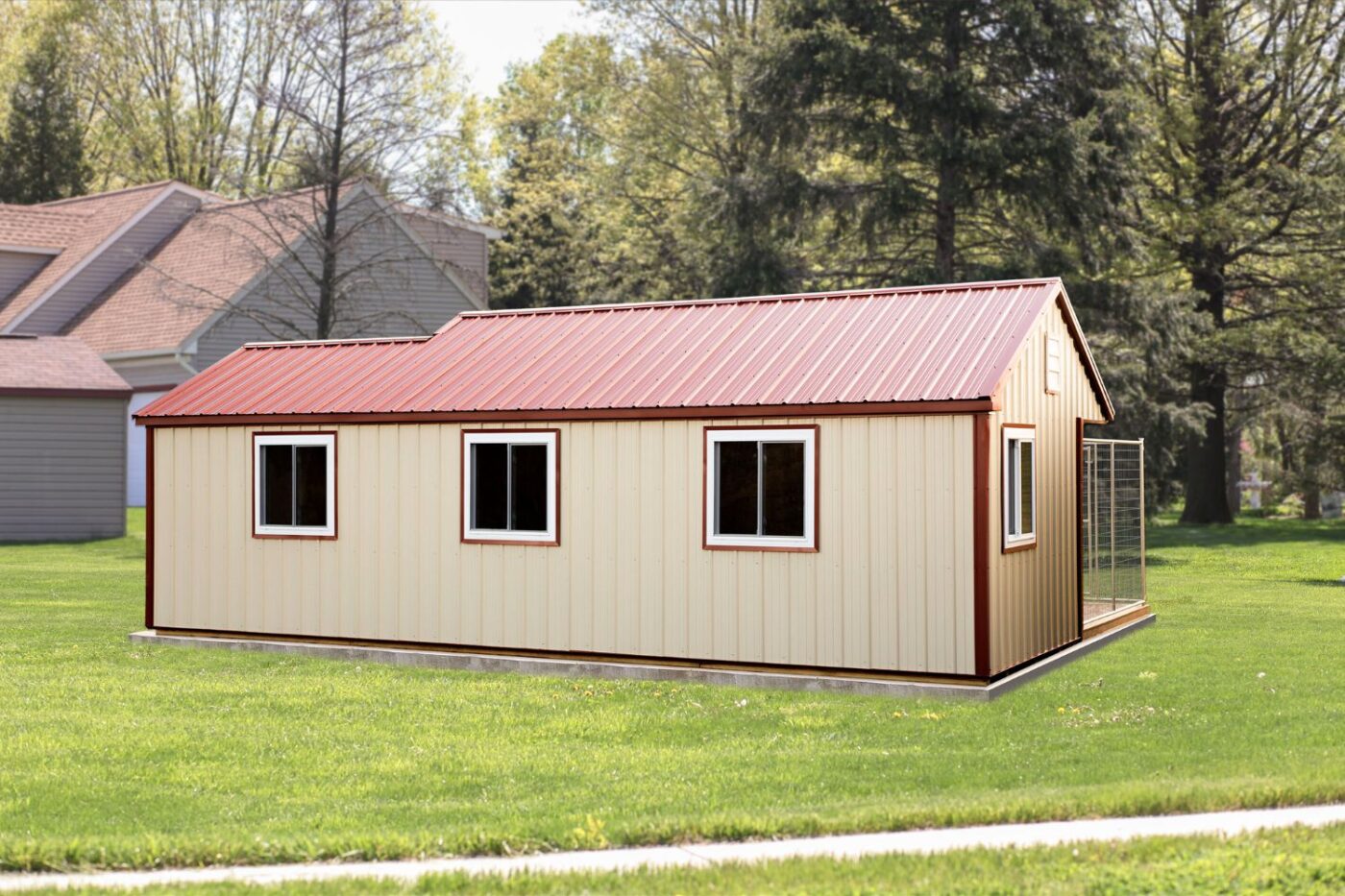
Kennel regulations in Maine vary by city and are often influenced by factors such as dog limits, facility size, and specific local ordinances. To ensure you have the most current and accurate information, reach out to your city’s planning or zoning department using the chart below.
| Auburn | Auburn City Charter & Ordinances |
| Augusta | Augusta Planning Bureau |
| Bath | Bath Planning & Development |
| Bangor | Bangor Planning Division |
| Biddeford | City of Biddeford Planning Department |
| Brunswick | Brunswick Planning & Development |
| Falmouth | Falmouth Planning |
| Gorham | Gorham Planning Division |
| Hallowell | Hallowell Planning Board |
| Kennebunk | Kennebunk Planning Board |
| Lewistown | Lewistown Planning and Code Enforcement Department |
| Orono | Orono Planning Department |
| Portland | Portland Zoning Administration |
| Saco | City of Saco Planning Department |
| Scarborough | Scarborough Planning & Codes |
| South Portland | South Portland Planning Department |
| Waterville | Waterville Planning Department |
| Westbrook | Westbrook Planning |
| Windham | Town of Windham Planning Board |
Ready To Start Your Dog Kennel Business?
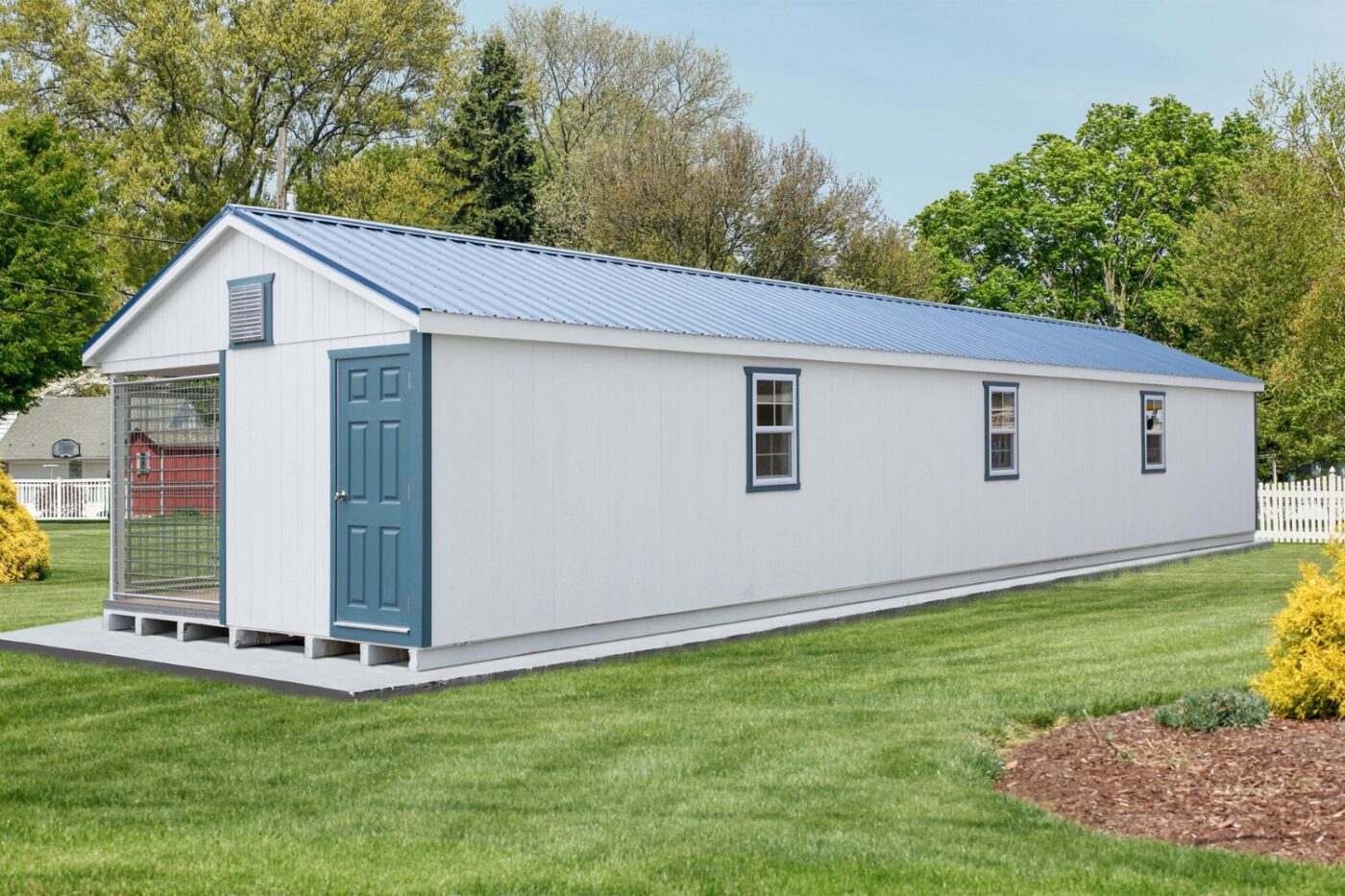
If you’re looking to grow your dog-related business with a facility built for both efficiency and comfort, explore our customizable commercial dog kennels. Our expertly designed buildings are built to support high-capacity operations without compromising on quality or animal care. With customization options that include climate control, easy-to-clean interiors, and tailored layouts for grooming, training, or boarding services, each kennel is built to meet the unique demands of your operation. No matter if you’re starting fresh or expanding your existing business, this is more than just a structure, it’s a dependable space designed to help you thrive.




